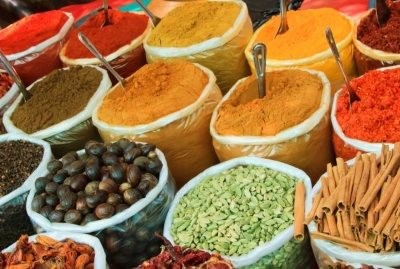When I was in SR or “Sekolah Rakyat” – (elementary school) in the ’50s got a history lesson that the colonizing nations from Europe such as the Dutch, Portuguese and British came to Indonesia to look for spices. I have not been “wondering” why westerners are struggling to go to Indonesia just to find spices, which to me are common- the spices are just kitchen spices. However, I wondered, only took kitchen spices the Dutch colonized Indonesia for 350 years, Portuguese and English each 5 years.
It turns out that Indonesian spices are not just a kitchen spice, but it is a world civilization. Historians have found the mummies of pharaohs – Egyptian kings 4,000 years ago whose noses were covered with pepper; The famous Egyptian queen Cleopatra was known to always wear fragrances or perfumes from natural ingredients such as cinnamon and cardamom. There is a question, where the spices used in the ancient Egyptian kingdom; was it from the archipelago?
The writer who was also a Greek astronomer and mathematician, who lived in 100-168 AD, Claudius Ptolemy, once wrote that northern Sumatra as a dangerous area because it was suspected to be inhabited by a number of cannibal communities. On the other hand, the area was also known to be rich with camphor, especially those exported since the 5th or 6th century, through a place called Barus, or we know it with camphor.
Mr. Ananto Kusuma Seta, Ph.D. Chairman of the Ministry of Education and Culture in a discussion with Faculty of Social and Political Science Universitas Airlangga on December 2020 explained that Indonesian spices have been the catalyst of world civilization, spices are not only used for food, but for religious ritual activities, for beauty, for medical ingredients etc. used by other nations thousands of years ago. The spice has also been used by the Indonesian nation in conducting diplomacy with other nations.
At Borobudur temple in Central Java there are 63 reliefs of spices in Nusantara in, and there is also relief of a large ship. This shows that since in the bygone days the Indonesian nation has conducted trade relations or diplomacy and trade with other countries in the world. We do not know whether the kingdoms of ancient Egypt thousands of years ago also had a relationship with the archipelago if we look at the use of spices in the lives of kings and nobles.
In the field of culinary in Europe for example, it is known that actually the taste of food in western countries is tasteless, there is only a “flavor” because it is added spices, such as ginger, cinnamon, cardamom, pepper etc. In the said event at Universitas Airlangga, Indonesia’s Ambassador to Ethiopia, Djibouti and the African Union Mr. Al Busyra Basnur added that women in Africa are famous for their habit of caring for beauty that uses natural ingredients such as spices.
The Indonesian nation should be grateful that Allah, God Almighty grant grace to this nation where various spice plants grows. Data from the Library of Congress in Washington DC (the library has more than 38 million books and other printed materials, about 3.6 million records, 14 million photographs, 5.5 million maps, 8.1 million sheet music and 70 million manuscripts) explains that 18th-century nutmeg grew on the Banda archipelago, cloves growing on the west coast of Maluku’s Halmahera, and traded in limited quantities, and in the 1450s demand for this spice rose dramatically in China and Europe. In the years between the 1390s and 1490s European clove imports rose by almost 1,000%, and nutmeg imports rose by 2,000% and this demand continued to rise until the next 120 years. Demand from the world at that time for pepper products grown on the islands of Java, Sumatra and Kalimantan also rose dramatically. That’s why European nations were competing for and colonizing Indonesia.
In ancient times it was known that the ancient Roman Empire bought cinnamon and pepper from India and the East Indies (the name of Indonesia in the colonial era). And other spices from Indonesia have reached Rome via Madagascar and East Africa by sea and land (caravan). If we study the history of the past world, it can be known that actually spices from Indonesia have contributed to the progress of world civilization, because the spices that other nations since ancient times finally know and develop medicines, use them for religious ritual events, make other nations know cuisine that has a high taste because of spices, has a high awareness of the need to care for the body / beauty etc.
It is time now that we, especially the nation’s educators, explain to the younger generation about the potential of the nation in this case spices as a catalyst for human civilization, because the spice has a philosophy, noble values in it, it has become a medium for diplomatic relations with other countries and therefore spices are not just kitchen spices. For the government and business people (especially Small and Medium Enterprises), it should be realized that this spice commodity is an important commodity of Indonesian exports (which has not been maximized so far). (*)





